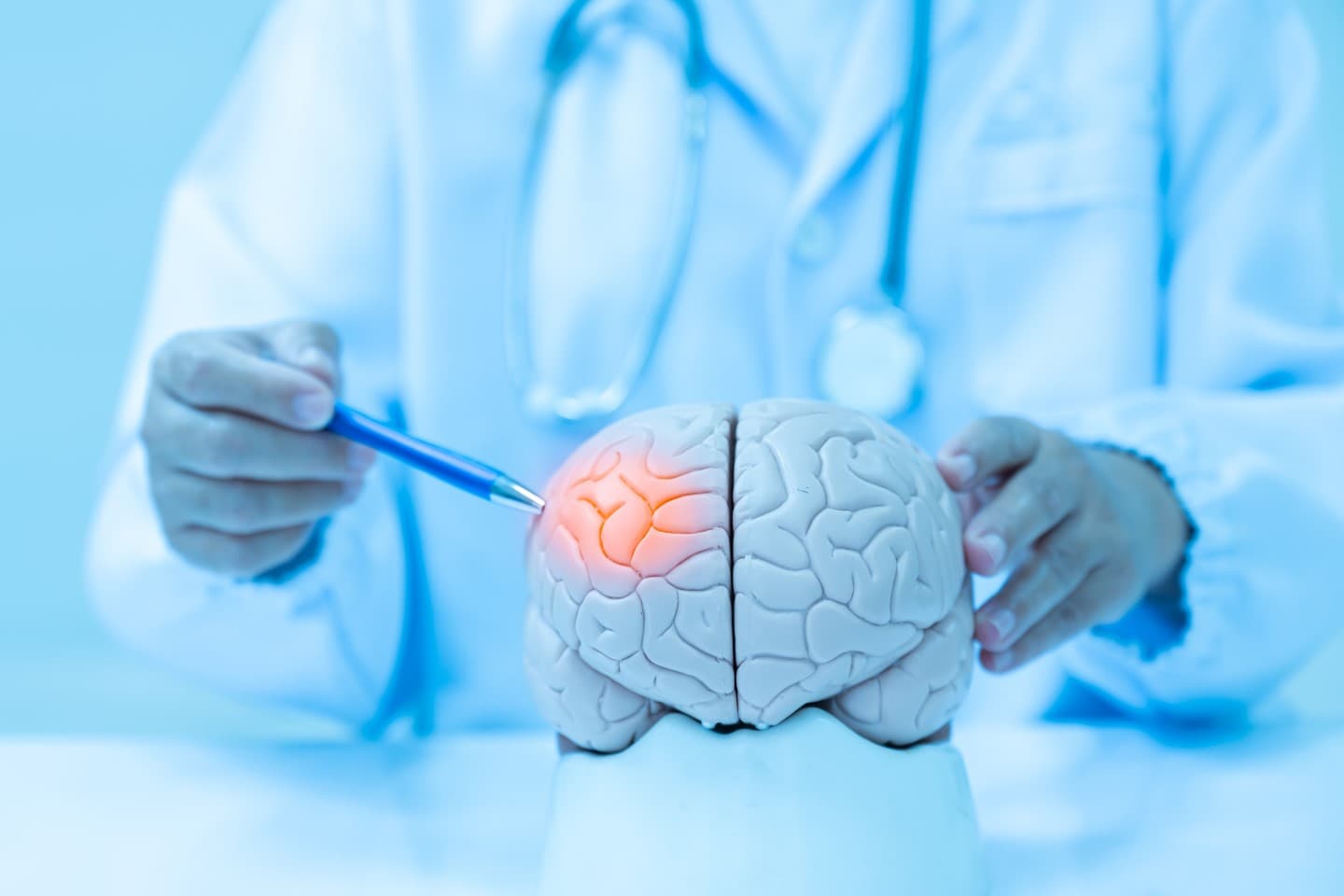
Myotonic Dystrophy symptoms that can lead to stroke
Myotonic Dystrophy (DM) is a hereditary disease that leads to muscle weakness and degeneration, and an increased risk of stroke. Although DM is rare, affecting about 10 in 100,000 people, in my work as a solicitor acting for adults with brain injuries, I have represented more than one client who suffered a stroke related to DM. I’m sharing information about this condition to raise awareness and help prevent stroke in those with DM.
Signs of Myotonic Dystrophy
DM symptoms usually develop gradually, often starting in adolescence or young adulthood. Common early signs include muscle weakness in the face, neck, fingers and ankles.
Symptoms vary, but may include:
- Early cataracts (before age 50) in both eyes
- Fatigue
- Muscle weakness
- Gallstones
- Difficulty swallowing
- Constipation
- Trouble relaxing muscles (e.g., difficulty letting go after a handshake).
A key risk factor is having a parent with DM, as it is a dominant inherited disease, meaning children of a person with the condition have a 50 percent chance of inheriting it. Sometimes, carriers may show no symptoms, making diagnosis tricky, although a simple blood test will usually confirm a diagnosis of myotonic dystrophy.
As DM progresses, it can cause heart rhythm issues, such as atrial fibrillation and atrial flutter. These may lead to blood clots forming in the heart. If a clot travels to the brain, it can cut off the blood supply to part of the brain, causing a stroke, and resulting in widespread and long-lasting disabilities.
Given these risks, heart health is closely watched in patients diagnosed with DM. If DM goes undiagnosed, however, heart issues may go unnoticed and stroke prevention measures aren’t taken with potentially catastrophic consequences.
Signs of atrial fibrillation
While not all DM patients develop atrial fibrillation, it is important to recognise and treat it to prevent stroke. Atrial fibrillation can be intermittent and not immediately apparent, but proper cardiac care should detect it.
Symptoms include:
- Irregular pulse
- Fluctuating blood pressure
- Abnormal ECG results
- Dizziness, fainting, or loss of balance.
DM patients should be vigilant about these symptoms and report them to their neurologist or cardiologist.
Managing stroke risk
A neurologist typically manages DM, but a cardiologist is involved if heart issues arise. The cardiologist diagnoses and checks atrial fibrillation and may prescribe medication like novel oral anticoagulants (NOACs) to reduce stroke risk. Examples include edoxaban, apixaban and rivoraoxaban, which act quickly and effectively.
Consequences of missed diagnosis
Failing to diagnose DM or recognise atrial fibrillation can lead to strokes, with devastating effects. Depending on the part of the brain affected by the stroke, abilities such as being able to move, feel, speak, understand language, chew, swallow, see, think, reason, judge, remember, organise, learn new information and control behaviour can be severely impaired. Stroke survivors may not be able to return to work and often need lifetime care, therapy, and support, as well as specialist equipment and adapted housing. Recognising the symptoms of DM and atrial fibrillation and ensuring proper management is crucial to reducing the risk of stroke.
It is also helpful for a person diagnosed with DM to carry a myotonic dystrophy alert card and a care plan, both of which have information to alert emergency and other healthcare professionals to the specific issues that affect people living with myotonic dystrophy. These are available for free from Muscular Dystrophy UK – call the freephone helpline on 0800 652 6352 or email info@musculardystrophyuk.org to order one.
How we can help
At Bolt Burdon Kemp, we specialise in helping individuals with complex and high-value personal injury and medical negligence claims, especially those involving acquired brain injuries.
Our focus is on securing compensation and support for those who have suffered life-changing injuries to help with their recovery and future security.
We aim to obtain interim payments of compensation during the claims process, giving our clients immediate access to rehabilitation and care. These resources are crucial for individuals looking to rebuild their lives after a brain injury, offering them the opportunity to create new hopes and possibilities for the future.
If you or a loved one has suffered a stroke related to DM, please get in touch with our Adult Brain Injury Team for a free, confidential and no obligation chat to see if we can help.










